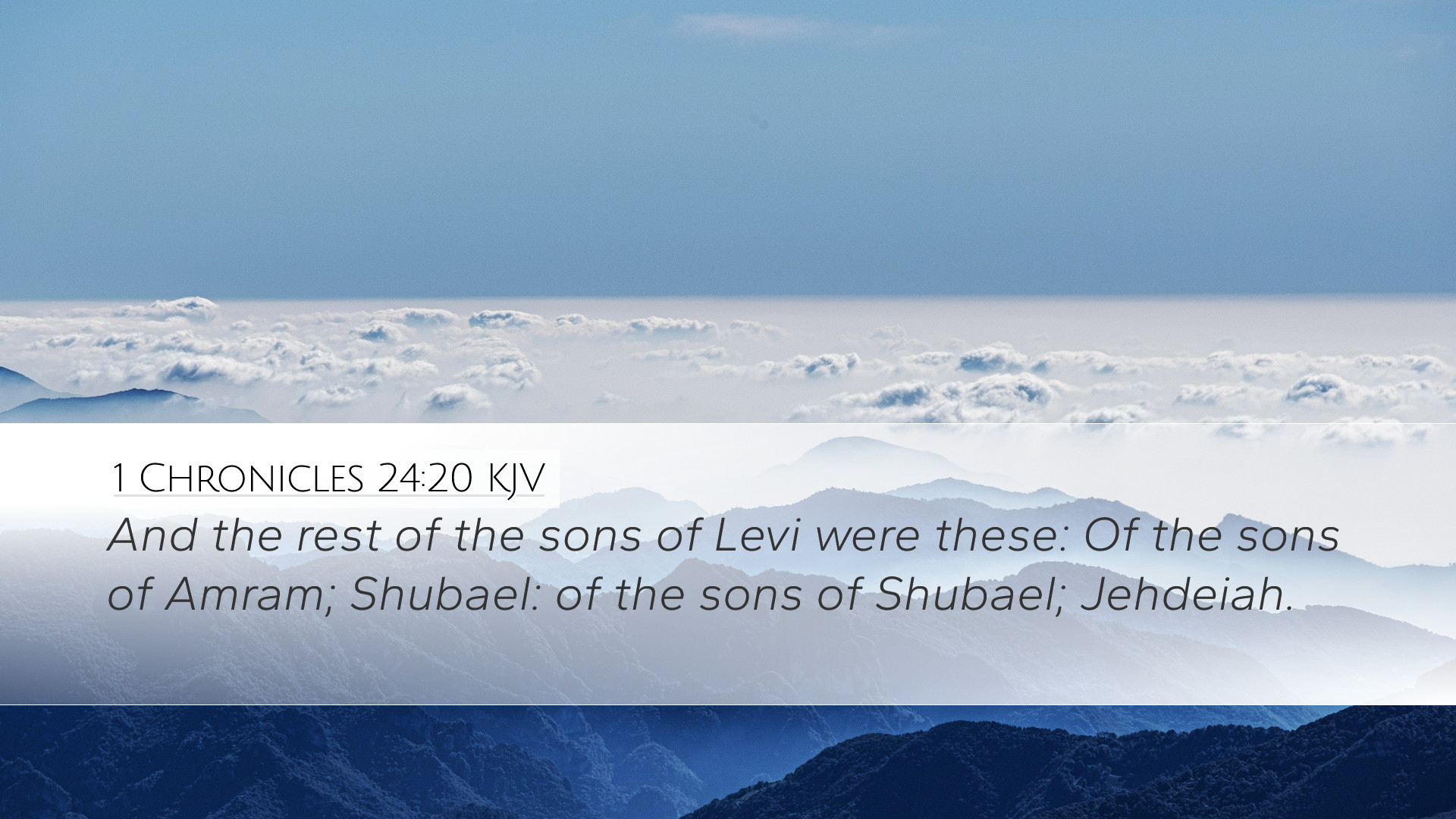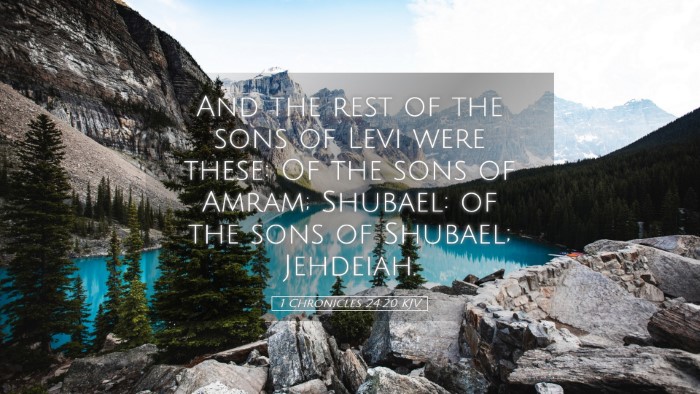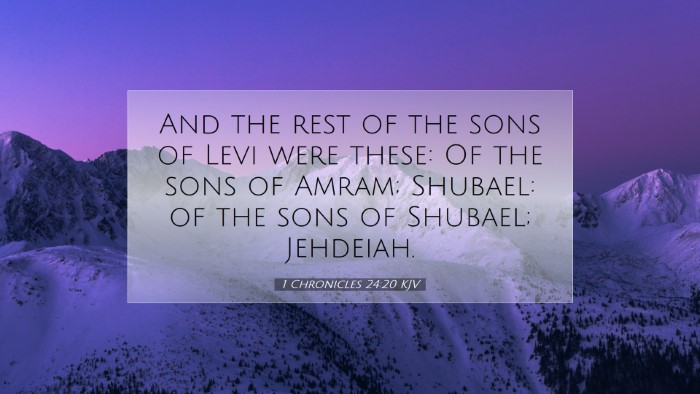Commentary on 1 Chronicles 24:20
Verse Overview: 1 Chronicles 24:20 states: "And of the rest of the children of Levi: of the sons of Amram; Shubal: of the sons of Shubal; Jehdeiah." This verse provides a genealogy of the Levitical priests and hints at the organization of the Levitical order, which is essential for the proper worship in Israel.
Contextual Background
This verse is set in the genealogical records that are prevalent in 1 Chronicles. The context of these genealogies is crucial for understanding the structure of the Levitical priesthood and the appointment of different families in various roles pertaining to temple service.
Matthew Henry's Commentary Insights
Matthew Henry emphasizes the importance of order and arrangement in the worship of God. He notes that the repeated genealogies serve not merely to trace lineage but to establish a legitimate framework for the priestly duties. He considers this order to reflect God's desire for structure in worship, which is evident throughout the Old Testament.
- On Levitical Organization: Henry remarks that the division of the priests into distinct families points to God's methodical approach in establishing His covenant community.
- Spiritual Significance: He highlights that every name and lineage mentioned in the Chronicles brings forth the idea that God's service should be approached with reverence and a clear understanding of roles.
Albert Barnes' Commentary Insights
Albert Barnes provides a detailed analysis of the individuals mentioned. He draws attention to the significance of each name and legacy of the priestly line, indicating how this system not only underscores the roles within the Levitical order but also signifies the continuity of worship practices through generations.
- On Amram's Lineage: Barnes explains how Amram, as a significant figure, represents a vital link in the Levitical priesthood. The descendants of Amram played crucial roles in the worship system.
- Jehdeiah's Role: He reflects on Jehdeiah and how each name contributes to a narrative of faithfulness and service, essential in understanding Israel's history and worship practices.
Adam Clarke's Commentary Insights
Adam Clarke delves into the theological implications of such genealogical records. He points to the faithfulness of God in preserving a remnant who would serve Him. Clarke often highlights how these historical accounts help subsequent generations understand their identity in relation to God's covenant.
- Reflection on God's Faithfulness: He posits that the meticulous record keeping reflects God's unwavering commitment to His promises, especially in relation to the priesthood.
- Covenantal Significance: Clarke discusses how this verse, while seemingly straightforward, carries weight in illustrating the broader covenantal framework laid out throughout Scripture.
Implications for Worship and Ministry
The detailed census of the Levites is not merely a historical account; it offers profound insights for contemporary worship and church structure. Pastors, students, and theologians can draw several important lessons:
- Order in Worship: Just as the levitical roles were crucial for proper worship, so too must modern churches seek to establish clear roles and responsibilities among their leadership and congregation.
- Continuity of Faith: Understanding our roots facilitates a deeper appreciation for the faith handed down through generations. This can encourage today's church to be diligent in preserving sound teaching and worship practices.
- Identity and Heritage: Much like the Levitical priests, which were set apart for God's service, contemporary believers are called to embrace their identity as a holy priesthood (1 Peter 2:9).
Conclusion
1 Chronicles 24:20 serves as a reminder of the significance of God's chosen people and the necessity of maintaining order in worship. The insights from Matthew Henry, Albert Barnes, and Adam Clarke provide a multi-faceted understanding of this verse that is not only historical but also deeply theological, offering practical applications essential for today's church leaders and scholars.


